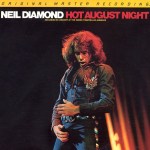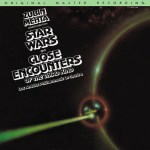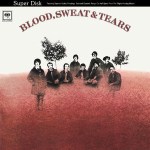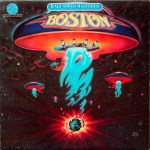More of the Music of Neil Diamond
Reviews and Commentaries for the Music of Neil Diamond
The MoFi, all things considered, is not a bad record, but the phony EQ they use causes Neil’s voice to sound unnatural, and an unnatural sounding Neil Diamond record is not something that appeals to us.
If any of you out there in audio land are still buying these remastered pressings, from any era, take the advice of some of our customers and stop throwing your money away on Heavy Vinyl and Half-Speed Masters.
At the very least let us send you a Hot Stamper pressing — of any album you choose — that can show you what is wrong with your copy. And if for some reason you disagree that our record sounds better than yours, we will happily give you all your money back and wish you the best.
Further Reading on Half-Speeds
Here’s a good question:
That’s an easy one. We’ve played them by the hundreds over the years, and we’ve found that as our ability to reproduce the sound of these records improved (better equipment, table setup, tweaks, room treatments, electricity and the like), the gap between the better non-half-speed mastered pressings and the half-speeds got bigger and bigger, leaving the half-speeds further and further behind, in the dust you might say, again and again, with so few exceptions that they could easily be counted on the fingers of one hand.
The most serious fault of the typical Half-Speed Mastered LP is not incorrect tonality or poor bass definition, although you will have a hard time finding one that doesn’t suffer from both. It’s Dead As A Doornail sound, plain and simple.
We’ve been playing half-speed mastered records since I bought my first Mobile Fidelity in 1978 or 1979. That’s forty years of experience with the sonic characteristics of this mastering approach, an approach we have found to have consistent shortcomings.
These shortcomings have somehow eluded the devotees of these records, how we cannot imagine in this day and age. They do not elude us, and we have taken the time to lay out their faults, chapter and verse, in the commentaries you see below.
The King of Compression
The current record holder for Most Compressed Mobile Fidelity Record of All Time?
This shockingly bad sounding Genesis album, a record I admit to owning and liking back in the ’80s. I had a lot of very expensive equipment back then, but it sure wasn’t helping me recognize how bad some of my records were.
How many audiophiles are where I used to be? Based on what I read on audiophile forums, and the kinds of audiophile pressings I see discussed on youtube videos, it seems that a large number of them are.
Below you will find the roughly 140 reviews we’ve written for the best and worst Half-Speed mastered records we’ve auditioned over the years. We could write reviews for fifty more if we thought it would do any good. The fact is, not matter how much we bash these awful pressings, audiophiles just keep buying them.
It only takes one Hot Stamper to show someone the error of their ways, but one Hot Stamper is one more than they own, so down the rabbit hole they go.
- Half-Speed Mastered Disasters
- Half-Speed Mastered Mediocrities
- Half-Speed Mastered Winners
- Half-Speed Masters – The Complete List
New to the site? Start here.

 More of the Music of David Bowie
More of the Music of David Bowie
 More of the Music of The Beatles
More of the Music of The Beatles

 More of the Music of Blood, Sweat and Tears
More of the Music of Blood, Sweat and Tears



